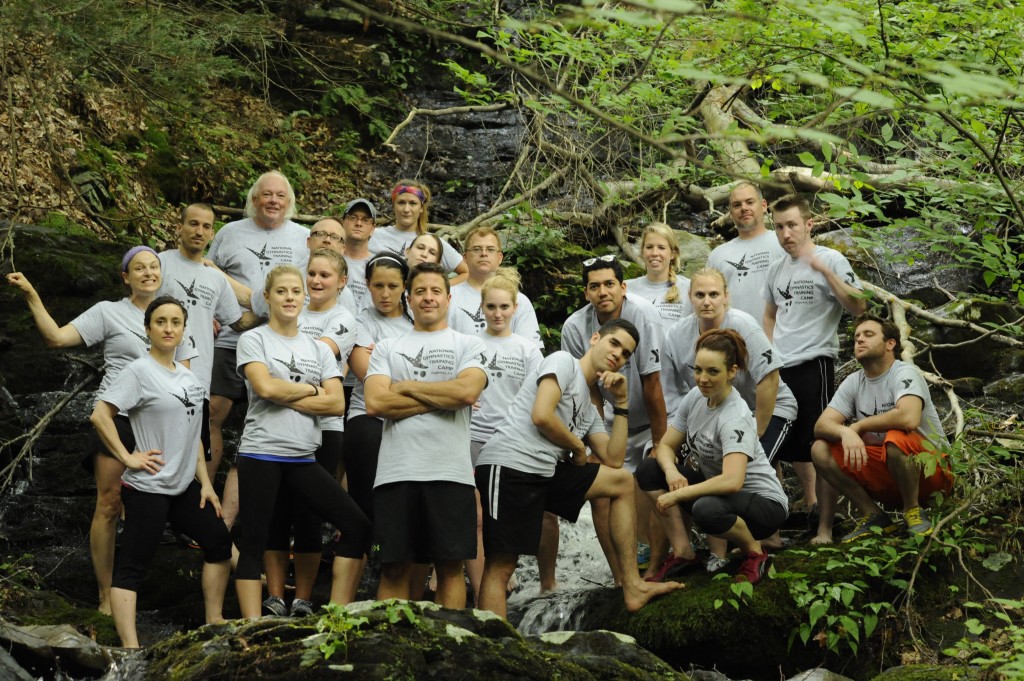I do a lot of technical gymnastics clinics and lectures. I always try to leave time at the end for Q and A. One of the most frequent questions I get is: WHO IS COACHING AND RUNNING YOUR GYMS WHILE YOU ARE HERE? Once we get through that answer we begin to explore gymnastics as a business more seriously. The next question is
“What is the best way to start out, at the beginning of a management relationship? Is it better to start off being hands off and then gradually become more hands on? Or is it better to start out being more hands on and then gradually become more hands off?”
I consider myself a highly-engaged hands-on manager. I really want to know all my staff. To know really what is going on. I work with some pretty spectacular people and I want them all to know that I have their back.
Remember the old rule when it comes to school teachers? Start off very strict and then, after the students come to expect, accept, and adapt to the strict regime, you can relax a bit. As long as the students continue to act like they are still in the strict regime, you don’t have to be quite as strict.
The same basic rule applies to managing employees, but you have to do it one person at a time. If you start out very hands on, you’ll figure out just how closely the person needs to be managed and you can calibrate your approach accordingly. I think you need to make it clear right at the outset that your expectations are high and that you are willing and able to manage very closely. This is especially important for your “rookie” coaches and teachers.
So start out very hands on:
Try to meet with new staff every day. Even if it is informal as you are setting up the gym. Tell them what the plan is in the gym. Help them break goals down into lists of concrete action steps with lots of guidelines and very short deadlines. And then, as the employee delivers on those expectations, you can gradually back off.
If the coach/ teacher keeps delivering, back off some more. But don’t back off too much. Keep meeting regularly to review priorities, clarify expectations, and to monitor, measure and document that person’s performance in the gym. If the employee’s performance falters in any way, tighten the reins for a while. Be much more hands on. If the employee slows down, be more hands on. If the employee starts missing details, be more hands on. If there is some behavior problem, be more hands on. And by the way, the same goes for any major change that is not related to a diminution of the employee’s performance: If there is a big change in circumstances, be more hands on. If the employee has a change in role, new tasks or responsibilities, a new project, be more hands. Be more hands on until you have things under control, until the employee is acting like he is in a strict regime. Then you can back off again.
This does not answer the question- when to cut them loose. When is this teacher a “lost cause”. I will save that for another day.
The obvious corollary here is this: What about training? Shouldn’t we be able to train staff thoroughly at the outset of their employment and then expect them to do their jobs properly? Think about the Marine Corps. They put their new employees through an eleven week boot camp. But after that, they still manage them very, very closely. Do you have an eleven week training program to tear down and rebuild your new employees? Just how thorough and rigorous is your initial training? Even if it is thorough and rigorous, you cannot simply train a new employee and then assume that he or she will do all the work very well very fast all day long. You have to keep managing that person. In that sense, you could say that there is little difference between good management and ongoing training. You cannot simply train an employee once at the outset of a job and assume they have all the tools and techniques they need to do the job properly. You have to talk with the employee about their work on an ongoing basis: Talk through tasks step by step, spell out expectations, and go over standard operating procedures. Then you have to monitor his actual work performance to see that he gets it right. Reinforce him when he gets it right and correct him when he gets it wrong. If he keeps getting it wrong, break it down into smaller pieces and spell it out more clearly… over and over again. If they keep getting it right, take a step back, give them some more space to make decisions and take action on their own. Keep monitoring their performance to see that they continue making the right decisions and taking the right actions. If they do, reinforce and reward them accordingly. Perhaps they are ready for expanded tasks and responsibilities.
My last piece of advice, never give an assignment with out a deadline. Everyone needs to be held accountable.




